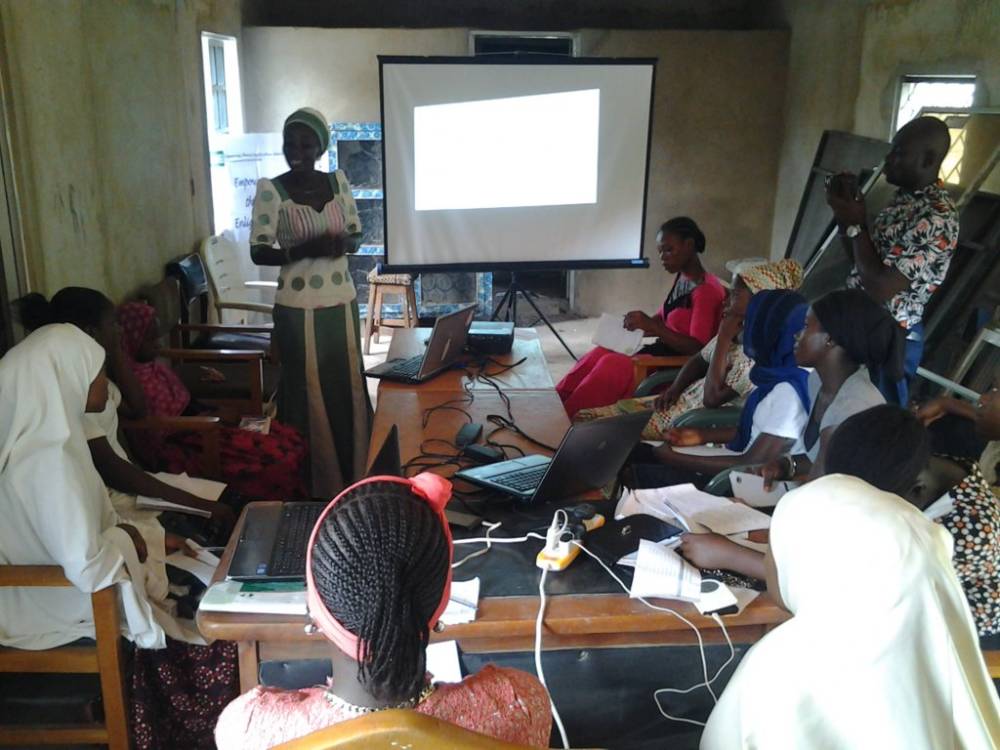
Unlocking Work Opportunities For Women In Northern Nigeria
Unlocking Work opportunities for Women in Northern Nigeria
Over the last two decades, a flurry of initiatives in Nigeria have aimed to support women's transition into work and self-employment, but women continue to face significant barriers to employment and economic opportunity. While this is a global reality, it is much more peculiar in low-income settings such as Northern Nigeria, where women's transition to work is heavily influenced by culture.
While more women are finding employment opportunities than ever before, women in Northern Nigeria are predominantly self-employed or work in family businesses or in informal settings within their homes. According to K4D, some women work multiple jobs for extended periods of time but are unable to earn enough money to escape poverty.
As a result, there has been an increase in discussion about how to organize work for women in ways that are decent, fulfilling, and flexible. This conversation has gained momentum in the developed world, particularly in the aftermath of the pandemic. While the pandemic has primarily been associated with job losses for women in the developed world, women in Northern Nigeria are increasingly turning to digital platforms to find remote work and promote their businesses.
Could Remote Work And Online Platforms Pave The Way
Thus, could remote work and online platforms pave the way for women to gain a greater share of the labor market? Could this trend also pave the way for women to have decent and fulfilling jobs? According to the ILO, women make up approximately 49% of the global labor force, while men make up 75%. According to the Nigerian Bureau of Statistics' Q4' 2020 report, women are unemployed or underemployed at a rate of 59.4 percent higher than men (53.6 percent ). This means that three out of every five women in Nigeria are unemployed or underemployed.
As a result, women have become the face of informal and vulnerable employment in the modern era. Beyond the realms of development thinking and its manifestation, this condition has real implications for women's livelihoods and also has implications for the labor market's efficiency and productivity. Given the disruptions caused by the COVID-19 pandemic, there are concerns about the possibility of achieving the Sustainable Development Goals' aspirations (SDGs). As we enter a new decade, it may be beneficial to reconsider how work is organized for women. As this is critical to achieving the 2030 agenda's goal of creating an enabling environment in which women can acquire relevant skills and transition to dignified and fulfilling work.
Essentially, the pandemic has altered our perception of work, particularly as businesses increasingly rely on remote workers. While this may be associated with certain issues, it may also represent a low-hanging fruit opportunity for women to transition into work, particularly in contexts where women's mobility is restricted. Women confined to their homes in parts of Northern Nigeria may find remote work advantageous, as preliminary findings from Jobberman's research indicate that women in Kano, for example, prefer more flexible work arrangements for family reasons.
As a result, it may be beneficial for employers to adapt their work cultures in ways that enable women to leverage remote work while also encouraging the freedom to have open conversations about work boundaries. Emerging ideas indicate that remote work offers a genuine opportunity to close the gender divide, particularly in the digital sector, where the majority of work can be accomplished virtually.
Growing Demand For Digital Skills
Nonetheless, the growing demand for digital skills represents a significant setback, as the Fourth Industrial Revolution continues to shape the world of work (4IR). Significant questions remain regarding women's access to digital tools and their socialization to develop digital and soft skills. Northern Nigeria is said to have a 30% lower literacy rate than the south.
This fact, along with the rural-urban divide and limited opportunities for girls and women, has contributed to the region's current digital skills gap. Inadequate investment in human capital and a lack of progress in women's education are impeding economic growth, as a demographic that accounts for half of the country's labor force becomes increasingly marginalized. Digital skills have the potential to create jobs that allow for remote or flexible work, potentially overcoming the gender barriers that have historically prevented women from finding work.
Northern Nigeria stands to benefit significantly from the digital economy, particularly with the growth of digitally enabled jobs in the creative sector and their translation into e-commerce. Women in the North are increasingly finding work in these spaces, but this will require investments in skill development (through the inclusion of soft skills and digital skills in the curriculum, we can close the skills gap and reduce the backlog of an analog reality); infrastructure improvements to support small businesses; and gender – restraining policies.
Courses and Certification
Basics of Computer Science Course and Certificate
Digital Communication Course and Certificate
Online Copywriting Course and Certificate
Communication Technologies Course and Certificate

